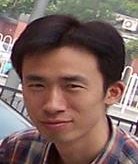沈弢微生物 ,副教授,博导
电话:82805070
邮箱:taoshen@bjmu.edu.cn
地址:卫生楼430
主要学习及工作经历
1989.9-1994.7 安徽蚌埠医学院医学检验系 本科
1999.9-2002.7 卫生部武汉生物制品研究所 病原生物学专业 硕士
2002.9-2005.7 中国疾病预防控制中心 免疫学专业博士
2006.5-2007.5 美国克里夫兰临床医学中心勒内研究所(Lerner ResearchInstitute of Cleveland Clinic Foundation)免疫学系 博士后
2007.7-2009.1 美国凯斯西储大学(Case Western Reserve University)生命科学系 博士后 1994.7-1999.8 安徽青阳县人民医院 检验师
2005.7-2006.5 温州医学院 医学微生物学和免疫学教研室 讲师
2009.5-2012.4 北京大学医学部病原生物学系 讲师
2012.4-现 在 北京大学医学部病原生物学系 副教授
主要学术任职
现任《中华微生物学和免疫学杂志》通讯编委,《微生物与感染》和《微生物学免疫学进展》编委。
获奖情况
1)2010学年被评为北大医学部优秀教师
2)2012年北京大学基础医学院优秀教学论文一等奖
3)2013年北京大学基础医学院优秀教学贡献奖
研究方向
HCV/HIV的感染免疫学
基金来源
1.艾滋病和病毒性肝炎等重大传染病防治科技重大专项“十二五”课题“艾滋病抗病毒联合免疫治疗的功能性治愈新策略研究”子任务课题“课题病毒储存库检测平台”(批准号:2014ZX10001001-002-004);子任务负责人,152万元(2014-2016);
2.艾滋病和病毒性肝炎等重大传染病防治科技重大专项“十二五”课题“乙型和丙型病毒性肝炎诊断及临床监测的研究”子课题“新研制及优化试剂的质量评价”(批准号:2012ZX10002005-004);子课题负责人,150万元(2012-2015);
3.科技部“十二五”863课题“高灵敏检测试剂及基于基因组的诊疗技术”(批准号:2012AA022605);子课题负责人,75万元(2012-2015);
4.国家自然科学基金面上项目“HCV慢性感染者和病毒自发清除者外周血单核细胞介导的固有免疫应答特征研究”(批准号:81271826)。课题负责人,70万元(2013-2016);
5.北京市自然科学基金面上项目“HCV慢性感染者和自发清除者单核细胞介导的固有免疫特征研究”(批准号:7122108)。课题负责人,11万元(2012-2014);
6.教育部2010年度高等学校博士学科点专项科研基金“嗜碱性细胞间接调节HCV病毒特异性CD8+T细胞免疫的作用机制”(批准号:20100001120047)。课题负责人,3.6万元(2011-2012);
7.北京大学医学部“新教师科研启动基金”建设项目“河南农村既往有偿献血地区HCV感染者CD4+T细胞亚群表型及功能分析”(批准号:BMU20090529-123)。课题负责人,2.5万元(2010-2011);
代表论文
1.Xiangbo Huang, Hua Liang, Xueying Fan, Liyan Zhu and Tao Shen*. Liver damage in patients with HCV/HIV coinfection is linked to HIV-related oxidative stress. Oxidative Medicine and Cellular Longevity. 2016, doi:10.1155/2016/8142431. (通讯作者) (IF: 4.492)
2.Wang Jie*, Shen Tao*, Huang Xiangbo*, Kumar GR, et al. Serum hepatitis B virus RNA is encapsidated pregenome RNA that may be associated with persistence of viral infection and rebound. Journal of Hepatology. 2016. pii: S0168-8278(16)30241-0. doi: 10.1016/j.jhep.2016.05.029. (IF: 10.59)(并列第一)
3.Jian Gao, Zhaojun Duan, Ling Zhang, Xiangbo Huang, Lu Long, Jing Tu, Hua Liang, Yu Zhang, Tao Shen* and Fengmin Lu*. Failure recovery of circulating NKG2D+CD56dim NK cells in HBV-associated hepatocellular carcinoma after hepatectomy predicts early recurrence. OncoImmunology. 2015, 4:11,e1048061. doi: 10.1080/2162402X.2015.1048061 (通讯作者) (IF: 7.644)
4.Zhaojun Duan, Jian Gao, Ling Zhang, Hua Liang, Xiangbo Huang, Qiang Xu, Yu Zhang, Tao Shen* and Fengmin Lu*. Phenotype and function of CXCR5+CD45RA-CD4+ T cells were altered in HBV-related hepatocellular carcinoma and elevated serum CXCL13 predicted better prognosis. Oncotarget. 2015, Oct 26. doi: 10.18632/oncotarget.6235. (通讯作者) (IF: 5.008)
5.Hua Liang, Zhaojun Duan, Dan Li, Dongliang Li, Zheng Wang, Li Ren, Tao Shen*, Yiming Shao*. Higher level of circulating monocyte-platelet aggregates correlated with viremia and increased sCD163 level in HIV-1 infection. Cellular & Molecular Immunology, 2015; 12(4): 435-443. (通讯作者) (IF: 5.193)
6.Zhaojun Duan, Xiangmei Chen, Zhenglun Liang, Yin Zeng, Fengcai Zhu, Lu Long, McCrae MA, Hui Zhuang, Tao Shen*, Fengmin Lu*. Genetic polymorphisms of CXCR5 and CXCL13 are associated with non-responsiveness to the hepatitis B vaccine. Vaccine. 2014; 32 (41):5316-22. (通讯作者) (IF: 4.222)
7.Jiajia Zheng, Hua Liang, Chunhui Xu, Qiang Xu, Ting Zhang, Tao Shen*, Fengmin Lu*. Unbalanced PD-1/CD86 ratio on CD14++CD16+ monocyte was correlated with HCV viremia during chronic HCV infection. Cellular & Molecular Immunology. 2014;11(3):294-304. (通讯作者) (IF: 5.193)
8.Yuan Liu, Tao Shen*, Chengda Zhang, Lu Long, Zhaojun Duan, Fengmin Lu*. HIV coinfection accelerates decay of humoral responses in spontaneous resolvers of HCV infection. Journal of Viral Hepatitis. 2014; 21(10): 690-695. (通讯作者) (IF: 4.179)
9.Tao Shen, Sohee Kim, Jeong-su Do, Lu Wang, Chris Lantz, Joseph F. Urban, Graham Le Gros and Booki Min. T cell-derived IL-3 plays key role in parasite infection-induced basophil production but is dispensable for in vivo basophil survival. International Immunology. 2008; 20(9):1201-1209. (IF: 3.031)
10.Tao Shen, Hua Liang, XiaoTong, Xiujuan Fan, Xiang He, Yan Ma, Wenhua Xiang, Rongxian Shen, Xiaoyan Zhang and Yiming Shao. Amino acid mutations of the infectious clone from Chinese EIAV attenuated vaccine resulted in reversion of virulence. Vaccine. 2006; 24(6): 738-749. (IF: 4.222)

 微博
微博
